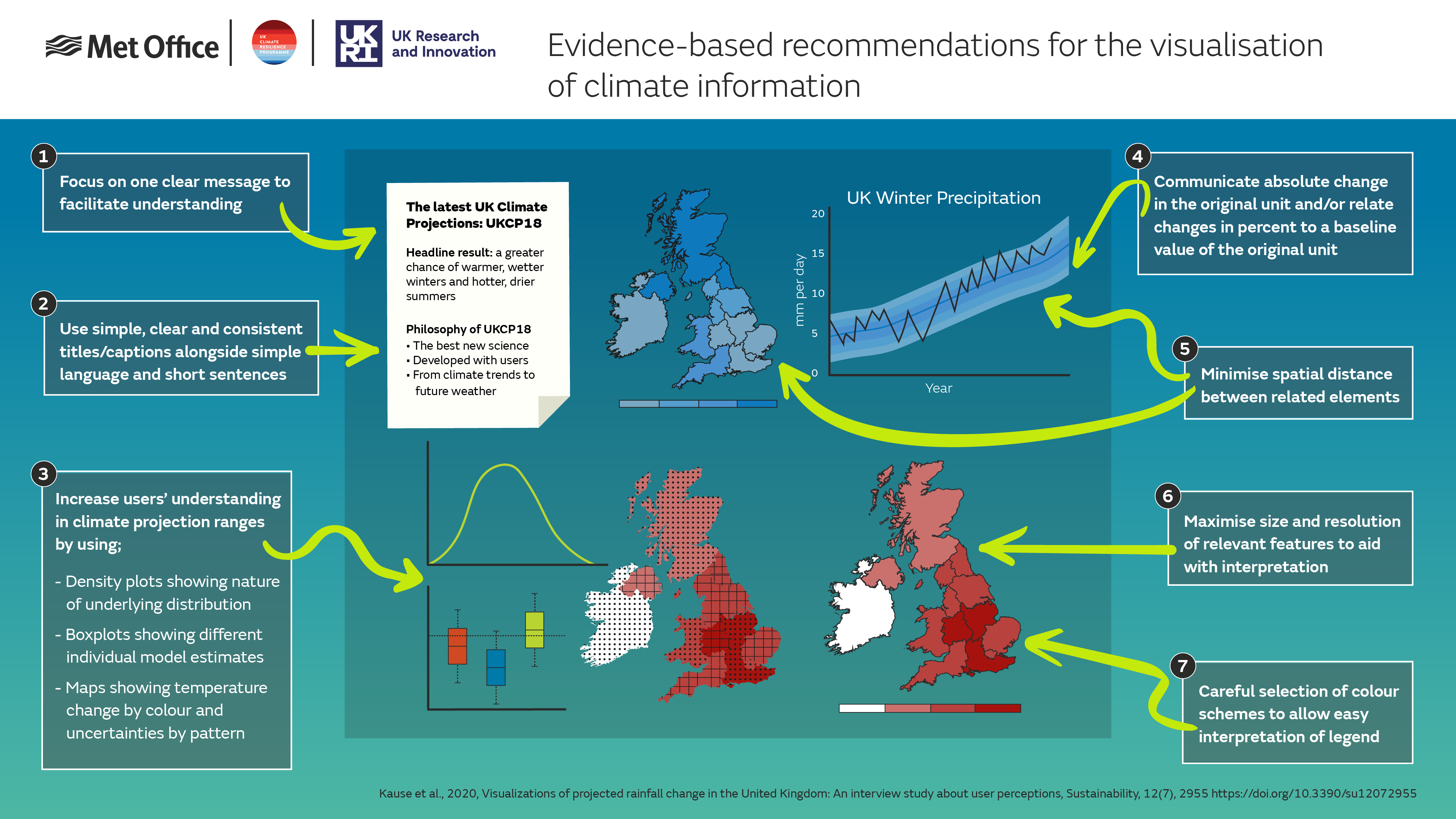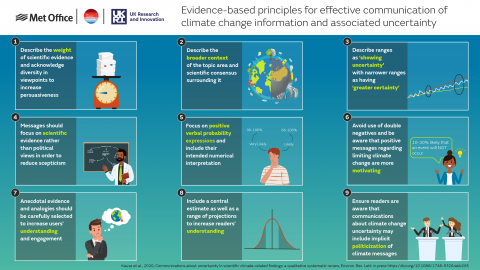This is the project page for workstream (h), Communication of Uncertainty, from the work package on From climate hazard to climate risk. The project reviewed empirical studies from the cognitive and psychological sciences exploring non-experts’ responses to uncertain climate information. It was led by the University of Leeds and has now been completed.
Aim: To derive a set of cognitive design principles for communicating uncertainties around climate information. (Project was extended to additional 3 months to include visualisation of uncertainties)
Outcomes: This work reviewed empirical studies from cognitive, psychological, and behavioural sciences exploring responses to uncertain climate information and its visualisation. It also describes different information formats and visualisations studied for communicating different types of climate change projections and uncertainty, as well as the individual climate-relevant differences between users that may affect their responses to information. It derives a set of cognitive design principles for communicating climate information and associated uncertainties in more accessible and transparent ways for informing urgently required climate policy decisions.
Read a summary of initial findings from the project.
Findings are also described in Visualizations of Projected Rainfall Change in the United Kingdom: An Interview Study About User Perceptions, by Kause et al (see Journal Papers)
Two infographics have been produced to communicate the findings from the project: Evidence-based principles for effective communication of climate change information and associated uncertainty (see header image) and Evidence-based recommendations for the visualisation of climate information (below).


